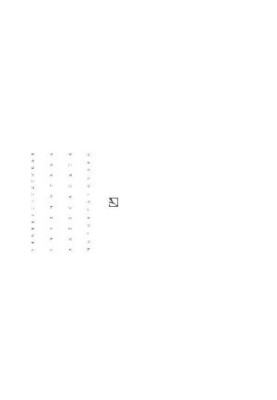What is called thinking?
 Instant download
Instant download
after payment (24/7)
 Wide range of formats
Wide range of formats
(for all gadgets)
 Full book
Full book
(including for Apple and Android)
The book “What is called thinking?” by the German philosopher Martin Heidegger is a deep and multilayered work that makes the reader think about the nature of thinking and its role in human existence. In this philosophical essay, Heidegger raises important questions concerning not only the act of thinking itself, but also its relationship to being, language, and experience. This work will be a real find for those who are interested in philosophy, existentialism and issues related to human consciousness. Heidegger, known for his work on being and existence, in What Is Called Thinking? offers a unique look at how we perceive the world and how our thinking shapes our understanding of reality. It explores what it means to think, and how thinking is related to language and culture.. The author asks the reader many provocative questions that encourage reflection on how we perceive the world around us and how this perception affects our existence. This book will be of interest not only to students of philosophy, but also to anyone who seeks to understand the deep mechanisms of their thinking. It is suitable for those who are fond of such topics as existentialism, phenomenology and hermeneutics. Readers interested in the works of philosophers such as Jean-Paul Sartre or Edmund Husserl will find in Heidegger a kindred spirit, because his thoughts echo their ideas about freedom, existence and perception. The topics raised in the book concern not only philosophical aspects, but also practical issues such as self-knowledge and understanding of others. Heidegger emphasizes that thinking is not just an intellectual process, but also a way of existence that requires us to be deeply aware and attentive. He encourages the reader not only to reflect, but also to feel that his approach is particularly relevant in our rapidly changing world, where there is often not enough time to reflect on what is happening. Heidegger's style in this book is distinguished by its poetry and depth. He uses metaphors and allegories to convey complex philosophical ideas that make reading not only cognitive but also aesthetically pleasing. His language may seem difficult to understand, but that's what his magic is: every phrase requires thoughtful reading and comprehension, which makes the reading process a real intellectual journey. If you’re looking for books that can rival What’s Called Thinking?, check out works by authors such as Michel Foucault, Sren Kierkegaard, and Simone de Beauvoir. Their works also explore issues of existence, thinking and human nature, and can complement your understanding of the topics raised by Heidegger. In conclusion, “What is called thinking?” is not just a book, but a real philosophical find that can change your perception of the world and yourself. It invites to deep reflection and self-knowledge, opening up new horizons for understanding human existence. If you are ready for this intellectual challenge, Heidegger is waiting for you with the open pages of his book.
LF/439959902/R
Data sheet
- Name of the Author
- Мартин Хайдеггер
- Language
- Russian
- Series
- Университетская библиотека Александра Погорельского
- ISBN
- 9785911290153
- Release date
- 2006

















